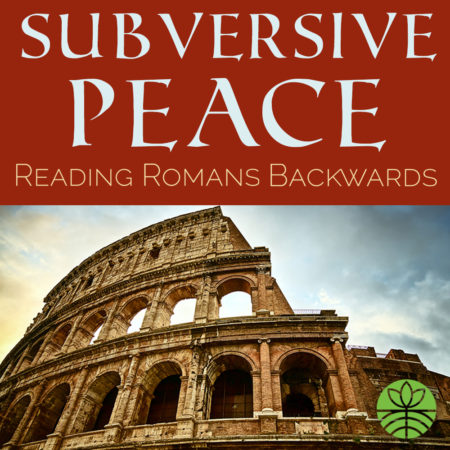"politics" Tagged Sermons
City on a Hill
This week’s sermon continued our exploration of Jesus’s Sermon on the Mount, focusing on the metaphor of being the “light of the world” and a “city on a hill” (Matthew 5:14). Pastor highlighted the historical appropriation of this metaphor by figures like John Winthrop and U.S. presidents, including Reagan and JFK, to frame America as a moral beacon. However, the sermon challenged this narrative, redirecting us to Jesus’s original intent: a vision for his disciples as a new and alternative…
#2 Be a Good Neighbor
In this message, Pastor T. C. approaches the second way to be Christian (Be a Good Neighbor) from the standpoint of engaging with politics. To be a good neighbor, we must care about the policies that affect our neighbor’s lives and the collective well-being of society. This is what it means to seek the shalom of the city.
The God Who Takes Sides
As we continue in our series, Loyal-love: Exploring God’s Character and Mighty Deeds, we reach the Passover narrative. While we rightfully celebrate the liberation of the Israelites in the this story, we are less prone to celebrate God’s judgment upon the unjust Egyptian policy of slavery and Pharaoh himself. Why is that? God’s Loyal-love compels God to take sides; God sides with the oppressed. In this message, Pastor T. C. explores the current phenomenon of “Bothsidesing” that creates a false…
Faithful Resistance & Subversive Creativity
In this sermon, Pastor T. C. kicks off a new teaching series from Exodus chapter 1 as we follow along with the Revised Common Lectionary. By joining with hundreds of millions of other Christians around the world, we are seeking to discern what God’s Spirit is saying to the whole church. This message focuses on the faithful resistance and subversive creativity that is highlighted in the story of Moses’s birth. The two Hebrew midwives, Shiphrah and Puah demonstrate faithful resistance…
From Zeal to Hospitality
Romans 13 is a famous text that has been used as a proof-text to justify state-sponsored violence for millennia. By reading Romans “backwards” (in light of the conflict between the factions in the house churches of Rome), we can more clearly see Paul’s purpose for writing this passage. Rather than sanctioning state-sponsored violence, Paul was transforming the zeal of the so-called “Weak” into love, honor, and hospitality. Paul was also reminding the disciples in Rome of Jesus’s teachings of enemy-love…
- 1
- 2




